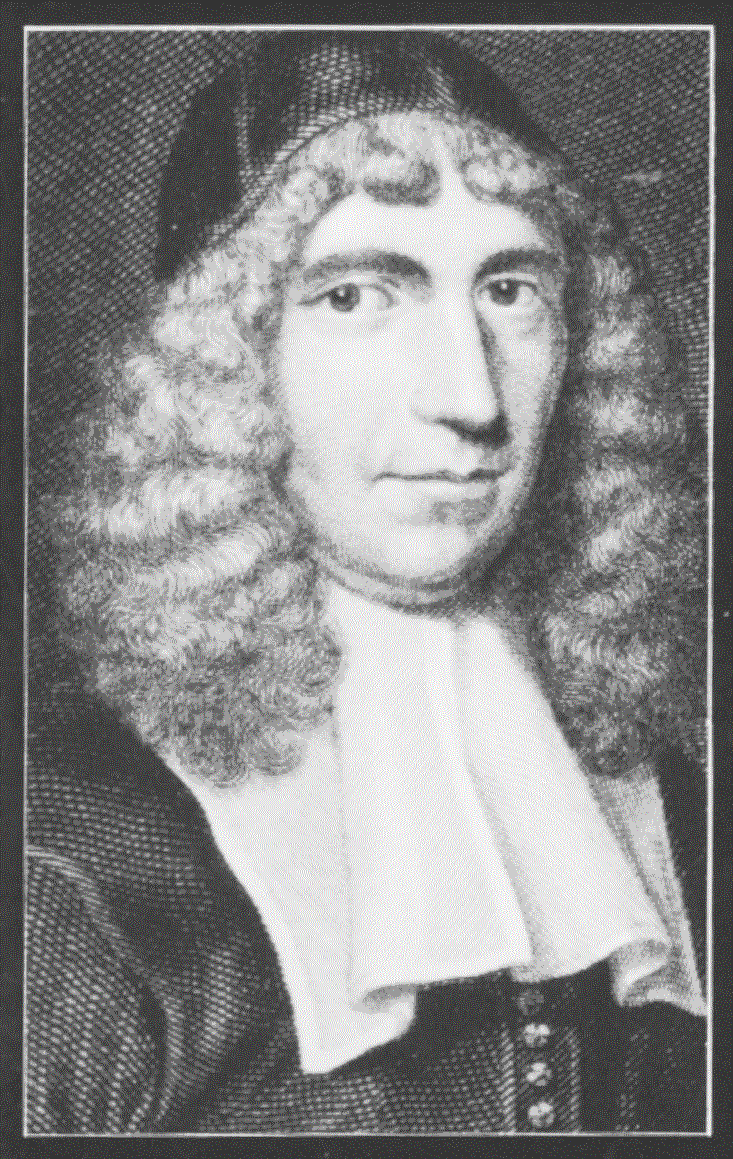
1616–1683
He came by it honestly. His father (the last of 15 children, all sons) longed so to see a corrupt church reformed that his zeal was labelled “Puritan”, the badge that son John would wear for decades and adorn with his gifts.
Owen was born in the village of Stadham, Oxfordshire, to a thoughtful couple who “home-schooled” their precocious youngster before sending him on to high school and thence, at age 12, to Oxford. At the university Owen applied himself to mathematics and philosophy, with time allowed for music lessons as well. (Years later, when he was chief administrative officer of Oxford, he appointed his flute-instructor as professor of music.)
While Owen immersed himself in his studies (permitting himself no more than four hours sleep per night), a campus figure loomed menacingly before him whose approach set the tone for so much of what Owen would have to contend with for the rest of his life. Archbishop Laud, chancellor of Oxford and implacable foe of all that the English Reformers had initiated; Laud decided to rid the university of all who wouldn’t assent to his anti-gospel agenda. Deliberately he enacted religious innovations that he knew reform-minded students could never assent to, and then used their non-assent as a pretext for expelling them. Those who were slow to leave he “encouraged” by means of his infamous “Star Chamber” and “High Commission”. The Commission dragooned suspects before the London Chamber, the venue for ruthless, arbitrary, arm-twisting interrogation without appeal. Laud watched a heartbroken Owen stumble out of the university where he had spent nine glorious years wedded to the love of his life: learning.
Meanwhile Laud’s master, King Charles I, was outraging millions with his contempt for parliament and his illicit forays into money-raising. Civil war irrupted.
In the midst of it all a spiritually-disoriented young man trudged miles to a chapel to hear its celebrated preacher. The fellow was absent that day. The substitute preacher announced the text, “Why are you afraid, O men of little faith?” (Matthew 8:26). By sermon’s end Owen knew the peace which does pass understanding since it is given in the midst of turbulence within and without. The Lord whom he had spent years fleeing but couldn’t escape had finally freed him by taking him captive. Thereafter Owen persistently sought — but never found — the name of the man whose message had been the lens focusing the light of God to the point of penetration.
Soon Owen was cheerfully at work as a pastor and diligently at work as a scholar-writer as the first of 27 dense tomes emerged from the point of his pen.
January, 1649, saw the trial and execution of Charles I for treason, tyranny and murder. Summoned to preach to parliament in April, Owen expounded “On the Shaking of Heaven and Earth”. (Hebrews 12:27) Here he caught the eye of Oliver Cromwell, leader of the parliamentary forces in the civil war. Cromwell discerned in Owen not merely the superb scholar but also the consummate administrator. In no time Owen was vice-chancellor of Oxford University, the position that managed all university affairs. Executive skill was needed here as academic rigour had declined, many member-colleges had closed, others were quartering soldiers and supplies, and money was scarce; in fact the university was colossally in debt. Owen cut short the petulant self-pity of college heads as he declared, “…groans become not grave and honourable men. It is the part of an undaunted mind boldly to bear up under a heavy burden.” Soon the university rebounded, internationally-acclaimed professors were appointed, needy students were subsidized, and one penniless fellow who wrote Owen in brilliant Latin was hired as the household’s tutor! In it all Owen sat on Cromwell’s committees, wrote theology the world will never be without, and even became a member of parliament.
When a parliamentary majority proposed making Cromwell king, Owen wrote the brief that dispelled the proposal. Angry now, Cromwell appointed his son, Richard, as Chancellor of the university. In six weeks Richard had removed Owen. With no trace of bitterness but only much magnanimity Owen moved to a village congregation.
In 1660, following Cromwell’s death, the monarchy was restored. Once again Puritans were proscribed. An Act made it illegal for more than five Puritans to meet in their own place of worship. Owen’s pulpit disappeared and his flock scattered. In 1662 another Act (it gave rise to “The Great Ejection”) rendered 2000 Puritan pastors homeless and penniless. They travelled by night and preached by day to handfuls of the faithful in barns and fields. Another Act rewarded informers for betraying them.
Prison populations were swelling and emigrant ships “sardining” their human cargo when the plague settled on London. The clergy of the Established Church fled to avoid infection, while Puritan ministers stepped forward self-forgetfully to succour the dying and the surviving. In the large cities newly-formed congregations cherished their newly-found pastors — as yet another Act outlawed any Puritan pastor who was found within five miles of a city or within five miles of any place he had preached in previously. Relegated now to remote rural areas, they returned to London when “The Great Fire” consumed church buildings that disappeared as quickly as large, Puritan-built, wooden tabernacles arose. Owen himself returned to London and, with upheavals everywhere, penned his most trenchant diagnostic tool of the human heart, Sin and Temptation. Steadfast, he remained in London even as parliament re-endorsed the earlier Acts outlawing Puritans.
The day before he died Owen wrote, “I am leaving the ship of the church in a storm; but whilst the great Pilot is in it, the loss of a poor under-rower will be inconsiderable.”
Others knew better. The Sunday following Owen’s death his successor, Rev. David Clarkson, lamented, “We have had a light in this candlestick. We did not sufficiently value it.”
Do we? The light that streamed from the Puritans was — and is — nothing less than invaluable.
Victor Shepherd
April 1997